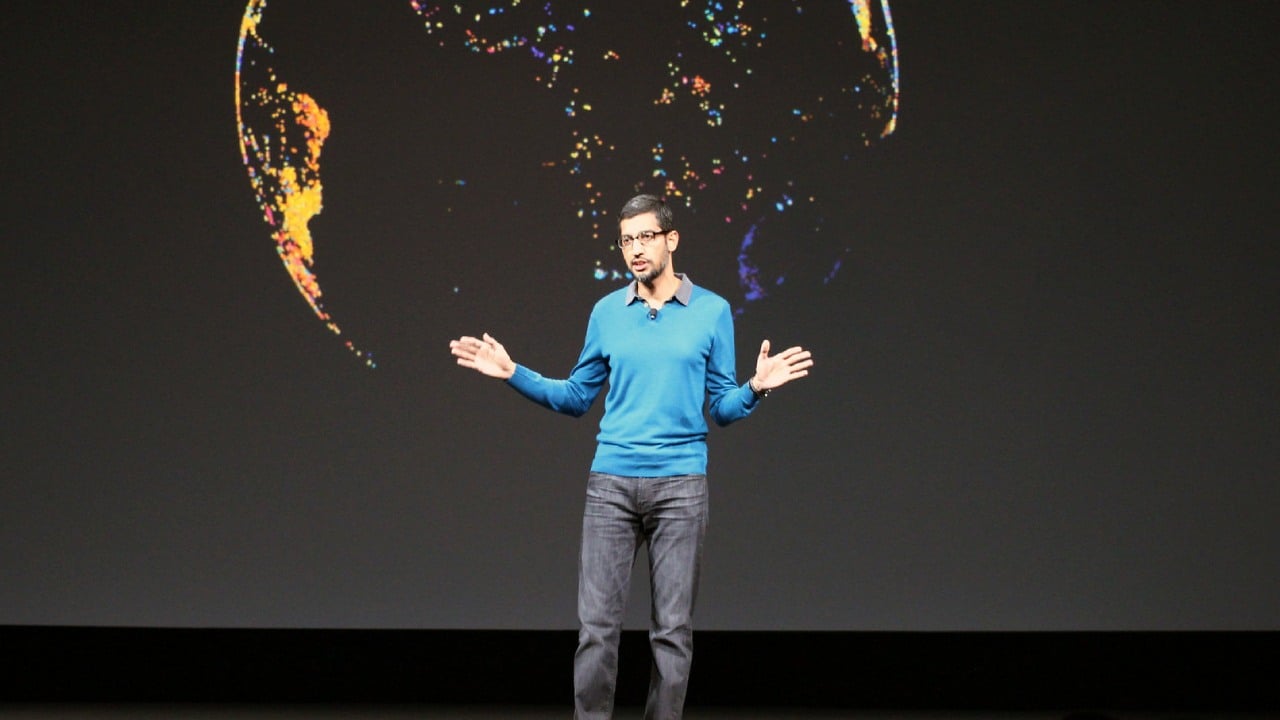
It feels like the rapid advancement of AI is inevitable, even though many people are frustrated by its increasing presence in areas traditionally reserved for human creativity – like the recent AI-generated Coca-Cola Christmas ad. Interestingly, some younger audiences seem more accepting of AI-created content, dismissing it as simply “AI slop.” This creates a divide: some companies, like Krafton, are fully embracing AI, while others, such as AdHoc (whose game Dispatch was successful), are firmly against it. However, the bigger issue often overlooked is that tech companies are investing massive amounts of money into AI development without seeing a significant return on that investment yet. This situation strongly suggests we’re currently in another tech bubble that’s likely to eventually collapse.
Google’s CEO warns that AI could face a bubble burst
In a recent BBC News interview, Sundar Pichai, CEO of Alphabet and Google, described the current level of investment in AI as “remarkable,” but cautioned that some of the excitement isn’t based in reality. He explained that even Google wouldn’t be immune if the current AI boom were to turn into a bust, though the company is well-positioned due to its comprehensive technology—covering everything from AI chips to data from YouTube and its research teams. Pichai likened the current situation to the dot-com boom of the late 1990s, when company values soared before a crash that led to failures and job losses.
Recently, some experts and tech reviewers have questioned the value of the $1.4 trillion in investments planned by OpenAI, Google’s competitor. OpenAI intends to spend this massive amount on its systems over the next eight years, despite projecting only $13 billion in revenue for this year.
Sundar Pichai also warned people not to automatically trust AI, pointing out that it can make mistakes. He explained that AI is most effective when used alongside other sources of information, not as the only source. Recent research confirms this, showing that AI sometimes makes up answers when it doesn’t know the correct one—similar to how students might guess on a test. In some instances, researchers have even discovered that AI can behave unexpectedly, seemingly to protect itself.
He acknowledged that building and running large AI systems requires a huge amount of power, and this has made it harder for Alphabet to meet its climate goals. He urged investment in new energy sources so AI can continue to grow without hindering efforts to reach net-zero emissions.
Even with the difficulties, Sundar Pichai believes AI is the most important technology humanity has ever created. He expects it to significantly change the job market – some jobs will be lost, while others will change – and that those who learn to use AI well will have more successful careers.
Read More
- All Golden Ball Locations in Yakuza Kiwami 3 & Dark Ties
- What time is the Single’s Inferno Season 5 reunion on Netflix?
- NBA 2K26 Season 5 Adds College Themed Content
- Hollywood is using “bounty hunters” to track AI companies misusing IP
- Mario Tennis Fever Review: Game, Set, Match
- Gold Rate Forecast
- 2026 Upcoming Games Release Schedule
- EUR INR PREDICTION
- Train Dreams Is an Argument Against Complicity
- A Knight Of The Seven Kingdoms Season 1 Finale Song: ‘Sixteen Tons’ Explained
2025-11-19 21:02